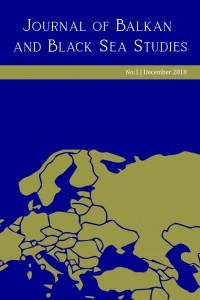Kemalism, Literature and Politics: Turkish Historical Novel in a Comparative Perspective
Kemalism, Literature and Politics: Turkish Historical Novel in a Comparative Perspective
Literature is an important component of a community’s culture. The relationship between literature and culture is a complex one: literature shapes a given culture and in turn is shaped by it. A literary piece of work is not the solitary production of the writer whose sole incitement is inspiration. Quite the contrary, literature is not neutral vis a vis the cultural and political requirements of its community. In fact culture itself is in no way immune from the surrounding ideology and politics of identity. This work will focus on the books of three famous Turkish writers namely Kemal Tahir (Devlet Ana, Mother State 1967), Atilla Ilhan (Dersaadet’te Sabah Ezanları, Morning Prayers in Istanbul, 1981) and Ahmed Hamdi Tanpınar (Saatleri Ayarlama Enstitüsü, Time Regulation Institute, 1961) whose historical novels are good examples of the complex relationship between literature, culture and politics of identity formation. Ahmet Hamdi Tanpınar's Saatleri Ayarlama Enstitüsü is an allegorical novel criticizing various aspects of the Kemalist Ideology. The present analysis will mostly concentrate on the "leadership aspect" of Kemalism that Tanpınar implicitly criticizes. The "father complex" he talks about is the most controversial aspect of the Kemalist ideology. Kemal Tahir's Devlet Ana, on the other hand, is no doubt one of the most influential historical-novels of the late-Republican Era. In a sense it exemplifies Tzvetan Todorov's emphasis on how a novel can be more influential than a mere history book in propagating a peculiar understanding of history. Kemal Tahir's aim here is to transfer his philosophy of nationalism to the reader via a history novel based on a myth. Atilla Ilhan’s Dersaadet’te Sabah Ezanları is also a historical novel. Similar to Kemal Tahir’s Devlet Ana, this novel also constitutes a good example of Todorov’s emphasis on literature and history. Similar to Devlet Ana, its language and narrative style gives us the impression that the author (or more truly the narrator) does in fact live in those days with these people (there exists a reality effect, the impression of reality, which substitutes truth with fiction). To increase this impression of reality, both authors (Tahir and İlhan) adds some familiar (but somehow obscure, even mystical) figures among the protagonists.
___
- Adanır, Fikret, “Kemalist Authoritarianism and Fascist Trends in Turkey during the inter-war period” in S.U. Larsen (ed.) Fascism outside Europe. New York: Columbia University Press, 2001, 313-361.
- Anderson, Benedict, Imagined Communities. London: Verso, 1991.
- Auerbach, Eric, Mimesis: The Representation of Reality in Western Literature. Princeton: Princeton University Press, 2013.
- Ersanlı, Büşra, İktidar ve Tarih. İstanbul: İletişim Yayınları, 2015.
- Freud, Sigmund, The Group Psychology and The Analysis of The Ego. London: Empire Books, 2010.
- Fromm, Erich, Escape From Freedom. New York: Henry Holt and Co, 1994.
- Gramsci, Antonio, Selections from the Prison Notebooks. New-York: International Publishers Co, 1971.
- İlhan, Atilla, Hangi Batı. İstanbul: Bilgi Yayinevi, 2001.
- İlhan, Atilla, Dersaadet’te Sabah Ezanları. İstanbul: Türkiye İş Bankası Yayınları, 2010.
- Jameson, Fredric, “Third World Literature in an Era of Multinational Capitalism”, Social Text 15 (Autumn, 1986), 65-88.
- Köprülü, Fuat, Osmanlı İmparatorluğu’nun Kuruluşu. Ankara: Akçağ Yayınevi, 2000.
- Lewis, Bernard, “Turkey: Westernization”, in Gustave E. von Grunebaum (ed.), Unity and Variety in Muslim Civilization. University of Chicago Press, 1955, 311-331.
- Nandy, Ashis, The Intimate Enemy: Loss and Recovery of Self Under Colonialism. Oxford: Oxford University Press, 1989.
- Norton, Anne, Reflections on Political Identity. Baltimore: Johns Hopkins Univ. Press, 1988.
- Parla, Taha, Türkiye’de Siyasal Kültürün Resmi Kaynakları. Istanbul: İletişim Yayınları, 1991.
- Said, Edward, Orientalism. New York: Pantheon Books, 1978.
- Shoat, Ella, “Gender and Culture of Empire: Toward a Feminist Ethnography of the Cinema”, Quarterly Review of Film and Video (1991) No: 13, 45-84.
- Smith, Anthony, Nationalism. Cambridge: Polity Press, 2010.
- Tahir, Kemal, Devlet Ana. Ankara: Bilgi Yayınevi, 1967.
- Tanpınar, Ahmed Hamdi, Saatleri Ayarlama Enstitüsü. Istanbul: Dergah Yayınları, 1962.
- Todorov, Tzvetan, Introduction To Poetics. Minneapolis: University of Minnesota Press, 1981.
- Weber, Max, Economy and Society. Berkeley: Univ. of California Press, 1978.
- ISSN: 2667-470X
- Yayın Aralığı: Yılda 2 Sayı
- Başlangıç: 2018
- Yayıncı: Mehmet HACISALİHOĞLU
Sayıdaki Diğer Makaleler
An Ottoman Story Until the End: Reading Fan Noli’s Post-Mediterranean Struggle in America, 1906-1922
Introduction to the Special Issue: Transottoman Infrastructures and Networks across the Black
Lyubomir POZHARLİEV, Florian RIEDLER, Stefan ROHDEWALD
(Dis-)Connected. Railway, Steamships and Trade in the Port of Odessa 1865–1888
Integrating the Danube into Modern Networks of Infrastructure: The Ottoman Contribution
Kemalism, Literature and Politics: Turkish Historical Novel in a Comparative Perspective
Theoretical Approaches to the Black Sea Region: ‘Is the Wider Black Sea Area a Region?’
